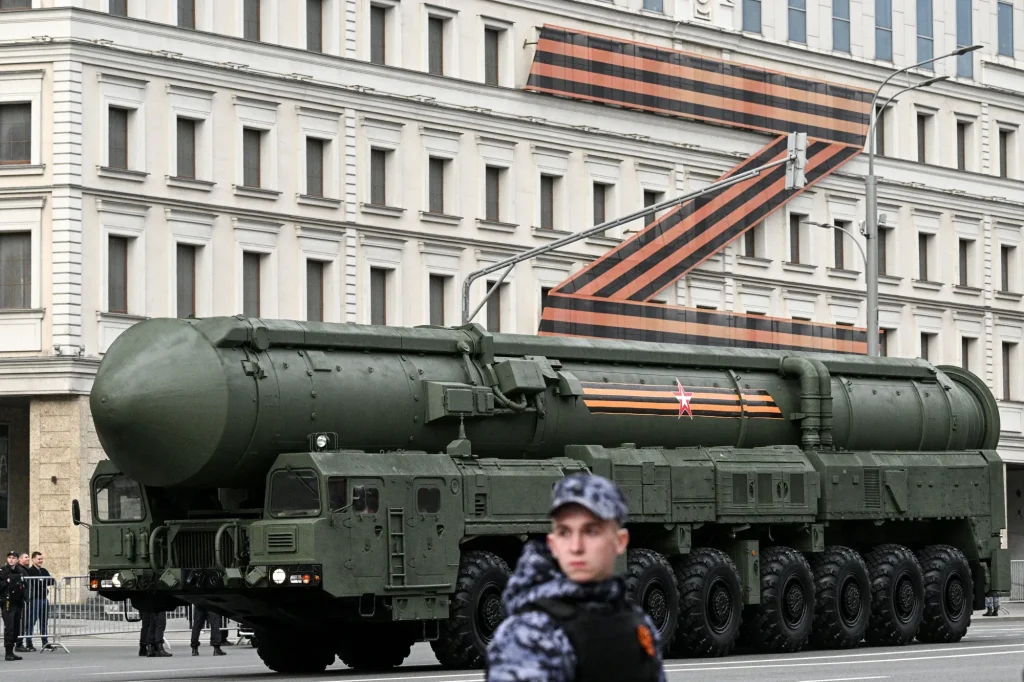Russian President Vladimir Putin on Tuesday enacted a decree that expands the circumstances under which Moscow may deploy nuclear weapons, sending a clear signal to the West and Ukraine.
This action coincides with the 1,000th day of Russia’s military campaign in Ukraine. It follows the United States granting Kyiv the green light to use long-range missiles to target military installations within Russia.
The updated doctrine specifies that Russia may contemplate using nuclear weapons against a non-nuclear nation if nuclear-armed countries back it.
“A non-nuclear state’s aggression, alongside support from a nuclear state, is viewed as a coordinated assault,” Kremlin spokesperson Dmitry Peskov said to the media on Tuesday, directly alluding to Ukraine and its Western allies.
“It was essential to adjust our principles to reflect the present circumstances,” Peskov remarked, deeming the revision a “highly significant” document that warrants international examination.
Russia “has consistently regarded nuclear weaponry as a deterrence strategy,” he stated, adding that such weapons would only be employed if Russia felt “compelled” to respond.

Throughout the nearly three-year conflict with Ukraine, Putin has made numerous nuclear threats, raising alarm in the West over what it has condemned as reckless rhetoric.
The revised doctrine permits Moscow to launch a nuclear counterattack in response to a “massive” aerial assault, even if it involves solely conventional armaments.
When the Kremlin initially revealed the suggested alterations in September, Peskov described it as a “warning” to anyone contemplating participation in “an attack on our nation by various means, not limited to nuclear.”
Under the new doctrine, Moscow’s nuclear protection will extend to its close ally Belarus.
On the 1,000th day of the ongoing conflict, Peskov stated that the “collective West” had instigated a “war” against Russia, vowing that Moscow would persist with what it refers to as its “special military operation” until completion.


